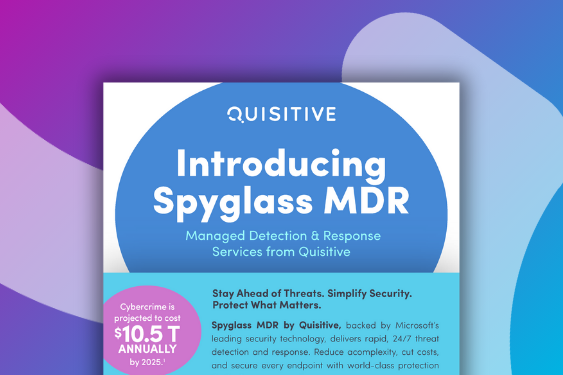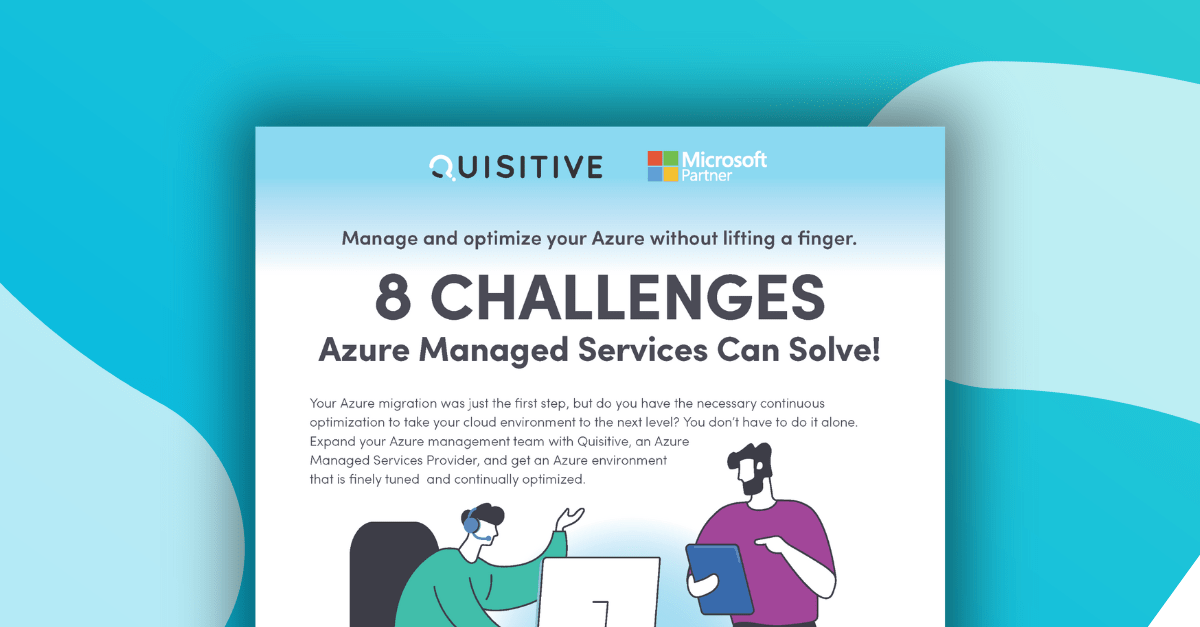You’ve built your IT team carefully, adding experienced and effective personnel over a long period. Your team knows your systems inside and out—they might even have built them from the ground up. They are experts who provide significant value to your organization.
But you’ve been hearing that managed services could add even more value, and you might be wondering: why would you lose that huge competitive advantage that your local team represents, and hand the reins of your technology to someone else?
It can be difficult, at first, to see the value in a managed services approach to your technology infrastructure. But this model can provide your organization with considerable advantages, without taking away from the great work your in-house team does.
The Benefits of Using Managed Services
- Expertise. A managed services provider specializes in running infrastructure, and their technicians are trained in it. An in-house team can’t be expected to keep up with rapidly evolving technology, much less know when new components become available that can give your organization new advantages. Having a managed services partner with expertise in infrastructure is the best (and cheapest) way to make this expertise available for your organization.
- Premier Support. Premier-level support for your Microsoft infrastructure is costly, and beyond the capacity of smaller organizations, but it’s essential to running your infrastructure effectively. With premier support, if your service provider can’t solve your problem, they can go straight to Microsoft to get in-depth root-cause analysis from their engineering QA teams. Bringing on a managed services partner that leverages premier-level support is the most cost-effective way to get this level of service.
- Cost. Maybe you can do it all in-house yourself, but what is it costing you in time and resources? Can you afford the staff that you’ll need for an entire IT team, or would it be better to hire a service to do it all for you? From a cost point of view, it’s far better to let your IT team focus on their core competencies and your strategic initiatives, and let a managed services partner provide the best practices and expertise specifically for your infrastructure to keep your running in optimally and securely.
- 24/7 Support. IT issues don’t follow a 9-to-5 schedule, and your support can’t either. What would it cost to build an in-house team to work on a 24/7 basis? A better solution is to engage a managed services provider that has a blended team, pulling talent from a worldwide pool. They can provide round-the-clock coverage, ensuring that you are taken care of any time, on any day.
- Gap Filling. No matter how great your IT team is, it’s impossible for them to cover everything. Perhaps they lack experience in a certain area. Maybe a key member of the team will need time off, so you’ll need temporary support until they’re back. A managed services partner can fulfill those short-term needs to make your team even more efficient and effective.
The managed services approach won’t solve all of your IT problems. But it has the potential to increase the effectiveness and value of your own team while giving you a number of other competitive advantages at the same time.

;)



